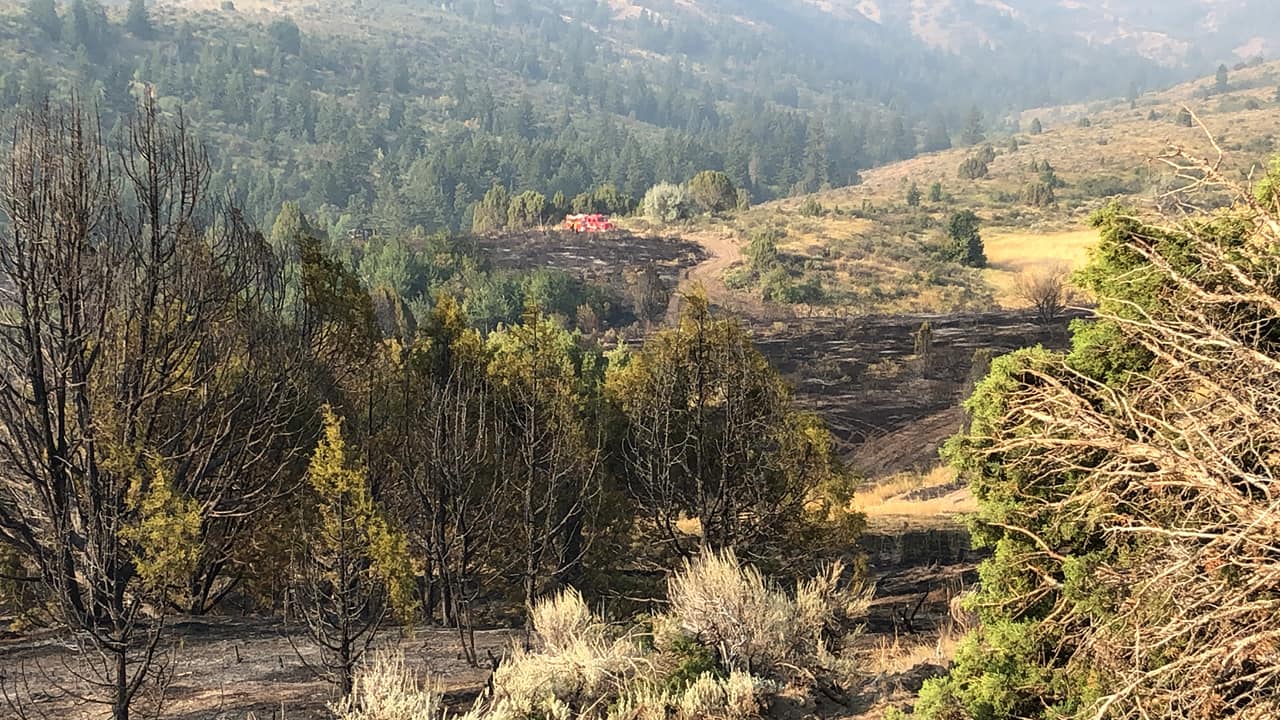Forest Service seeking information about cause of wildfire that destroyed fire truck
Published at | Updated at
POCATELLO — U.S. Forest Service investigators are seeking information about the cause of a wildfire that destroyed a Pocatello fire engine and caused evacuations over the weekend.
The Wild Mountain Fire started early Sunday morning on Forest Service lands near the Gibson Jack trailhead south of Pocatello near the Juniper Hills Country Club. The fire proceeded to spread downhill towards homes along the Gibson Jack road. Residents in the area of the Gibson Jack and Wildhorse subdivisions were evacuated for a short time period.
While the fire only burned 19 acres, one fire engine high centered on difficult terrain and was eventually destroyed by the fire. No one was injured.
Authorities say they have ruled out a lightning strike and found evidence at the origin site that points to the fire being caused by humans.
“We know this fire was human-caused,” Kim Obele Westside District Ranger said in a news release. “While we were very fortunate no lives or homes were lost, this was still a costly and unnecessary wildfire.”
Forest Service spokeswoman Sarah Wheeler said they’re looking for information about the person responsible given the damage caused by the fire. The exact cost of the damage has not yet been calculated.
“It’s not fair for the taxpayer to cover these costs if someone is found to be responsible and negligent in starting this fire,” Wheeler said.
The USFS is asking for any information that may help with the investigation of the Wild Mountain Fire. If you, or anyone you know, has information on the fire, please contact USFS Law Enforcement Officer Jay Youngblood at (208) 313-7739 or via email at gerald.youngblood@usda.gov.
The Caribou-Targhee National Forest is still under Stage 1 Fire Restrictions. Warmer weekend temperatures, high winds, dry fuels and the difficulty of obtaining fire resources due to intense fire activity nation-wide all contribute to the decision to remain in restrictions.


